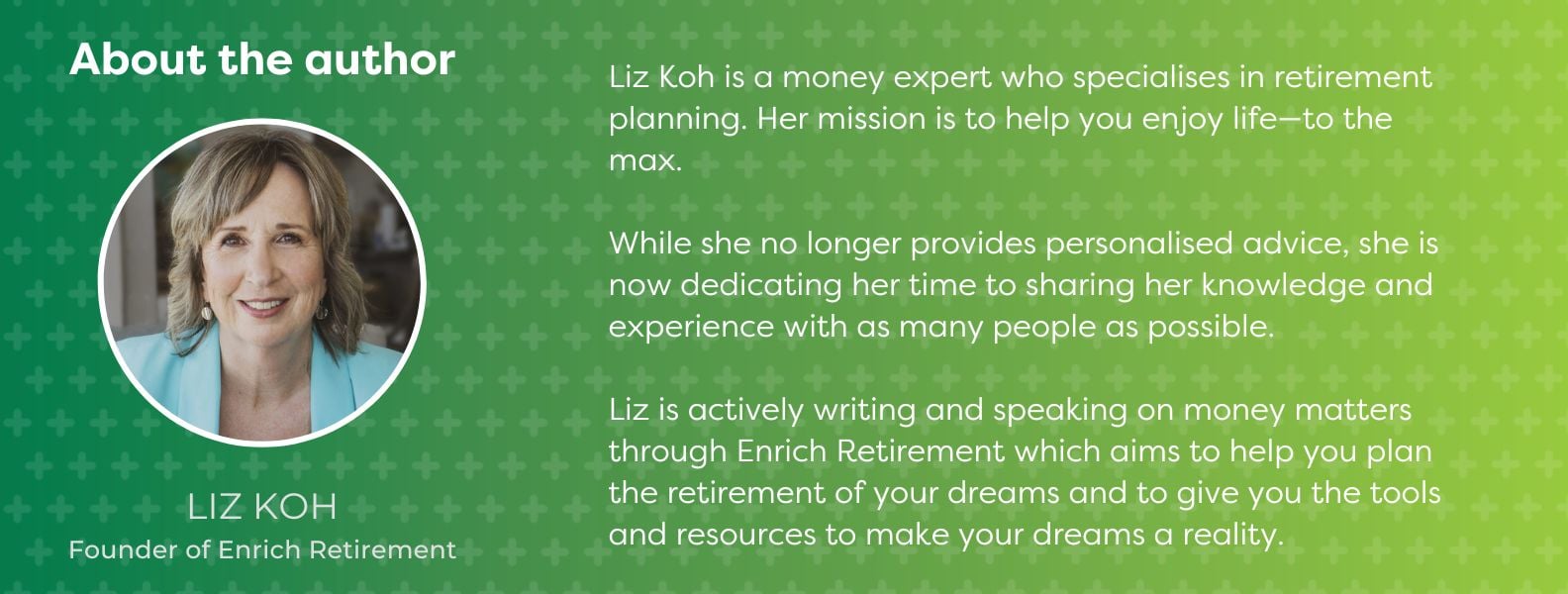HealthCarePlus has joined up with Liz Koh, an author and speaker, who brings a wealth of experience to retirement planning. Liz has spent many years writing about financial matters, sharing the knowledge she has acquired from working with clients over the last two decades. Her mission is to help you enjoy life—to the max! We like that and we are delighted in partnering with Liz to provide information and resources to help our Members get the most out of their retirement years.
We will regularly feature articles from Liz and in this article Liz provides information on how well are women managing finance and some factors that contribute to women's reluctance to seek financial advice.
When it comes to women and finance, there are some global themes supported by research in a number of countries including New Zealand. This research shows that women:
- Have lower financial confidence and wellbeing when compared to men
- Have lower incomes due to a gender pay gap
- Are impacted by foregoing income over their lifetime, which amplifies wellbeing issues in retirement. Income can be foregone by taking time out of the workforce, working reduced hours, or not seeking more demanding, higher paid jobs.
In December, 2021, the Financial Services Council released its report ‘Money and You – Women and Financial Wellbeing in New Zealand’ which investigates how Kiwi women approach their finances and the obstacles they may face in achieving financial confidence and wellbeing. The key findings from the research report are:
- Over 60% of women worry about money daily, weekly or monthly and over 70% feel that financial wellbeing influences their overall wellbeing
- 62% of women don’t feel prepared for retirement, however money worries decrease with age. Younger women worry the most
- Over 80% of women rate their financial wellbeing moderate, low or very low
- 60% of women rate their investing literacy low compared to 40% of men
- Over 30 % of women use or plan to use micro-investing platforms such as Sharesies or Hatch
Interestingly, the research found that while women rated their financial confidence and wellbeing lower than what men did, the fact that they are actively engaged in budgeting, saving and investing shows that women’s perception of themselves does not match with reality. According to the report:
“Women are investing, they are saving, and they have financial goals they are working towards. What is needed is a greater emphasis on empowerment so that women possess the confidence – as well as the capability – in making financial decisions.”
While women are investing, they tend to be more risk averse with their investments. For example, they are less likely to invest in newer, more risky forms of investment such as cryptocurrency or Non Fungible Tokens (NFTs).
Women’s ability to save, especially for retirement, is impacted by the gender pay gap arising from lower salaries and by an interrupted working life. They contribute to KiwiSaver on average at a lower rate than men, and miss out on employer contributions when they take time out of the work force.
While women need greater confidence with money, they are less likely to seek financial advice. The research showed that:
- Less than 5% of women currently use a financial adviser compared to over 7% of men.
- Around 60% of women have never used a financial adviser compared with 50% of men.
It would be interesting to see future research on the reasons why there is a reluctance to use financial advisers, particularly amongst women. Some contributing factors could potentially be:
- The low number of female financial advisers in New Zealand
- Women may feel more intimated by male advisers
- Women’s perceived lack of confidence in dealing with financial matters may deter them from seeking advice
- Both genders may hold perceptions about financial advisers which deter them from seeking advice.
Let’s hope that this important research report goes some way towards prompting changes which will support women’s financial futures.
Liz Koh is a money expert specializing in retirement planning. The advice given here is general and does not constitute specific advice to any person. A disclosure statement can be obtained free of charge from www.enrichretirement.com





